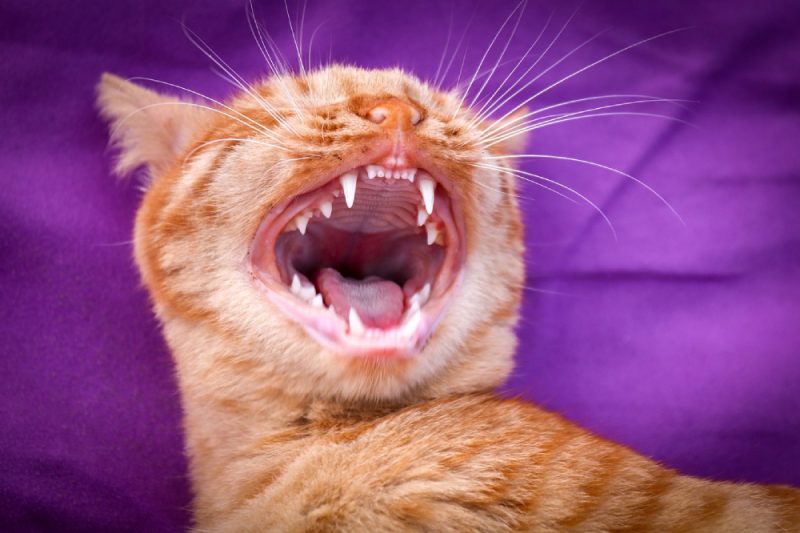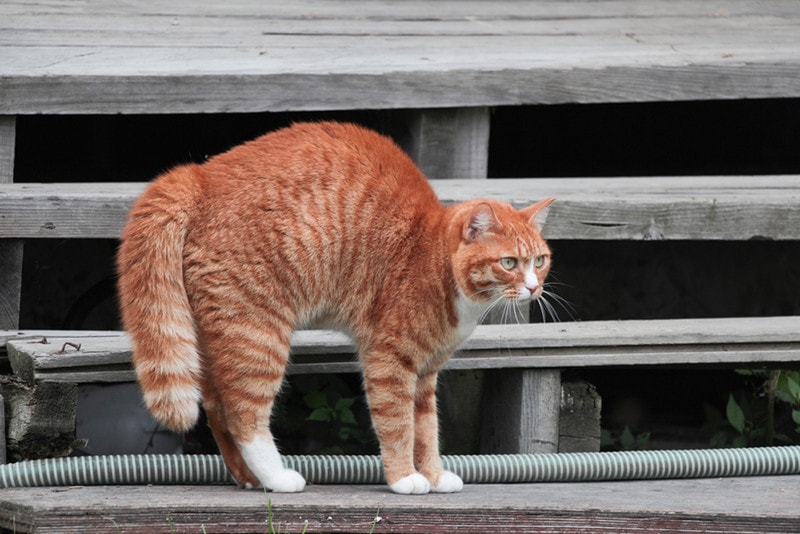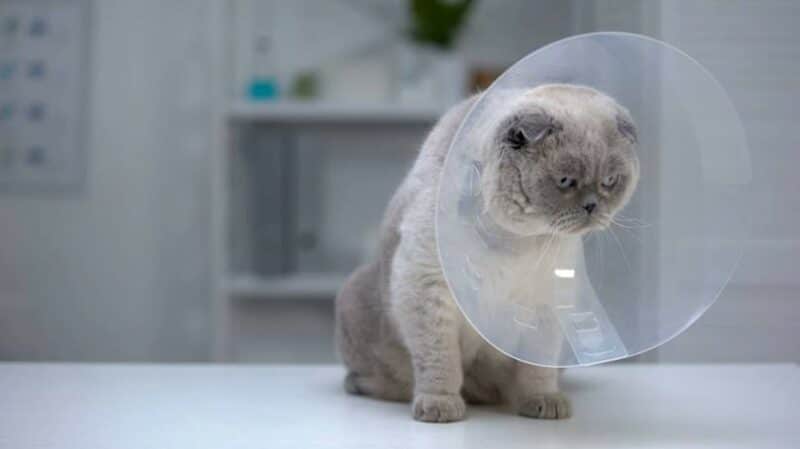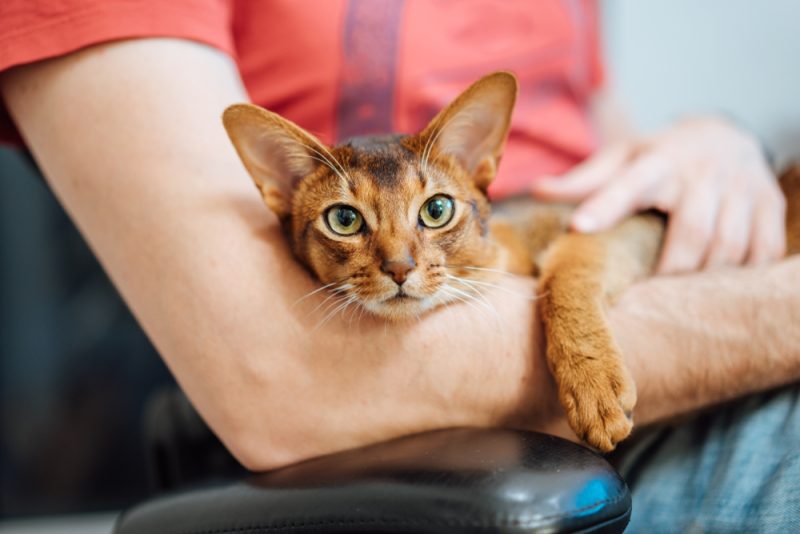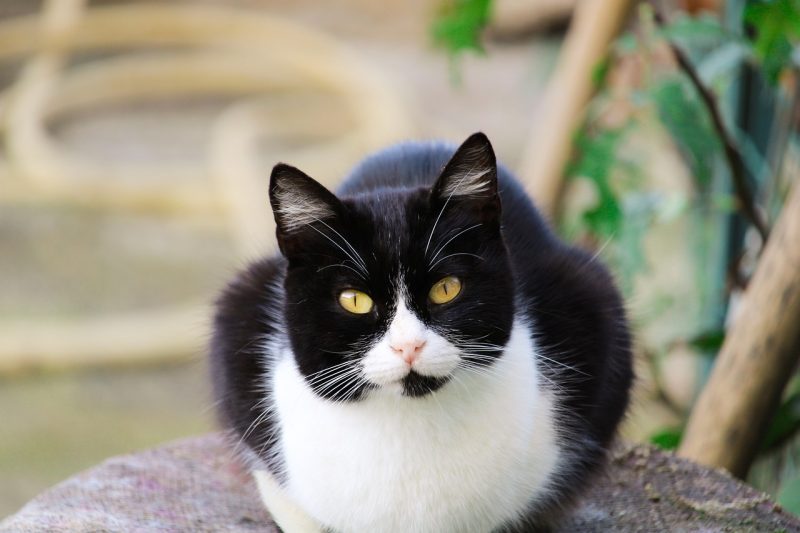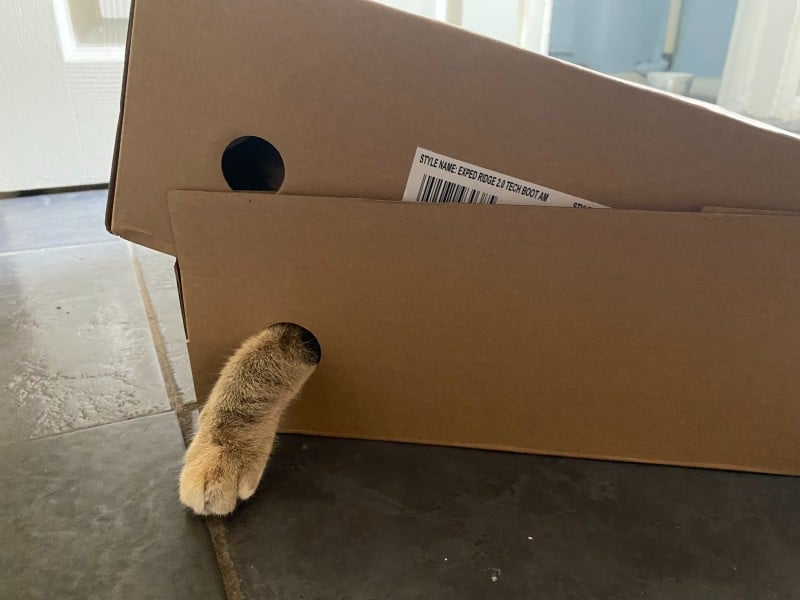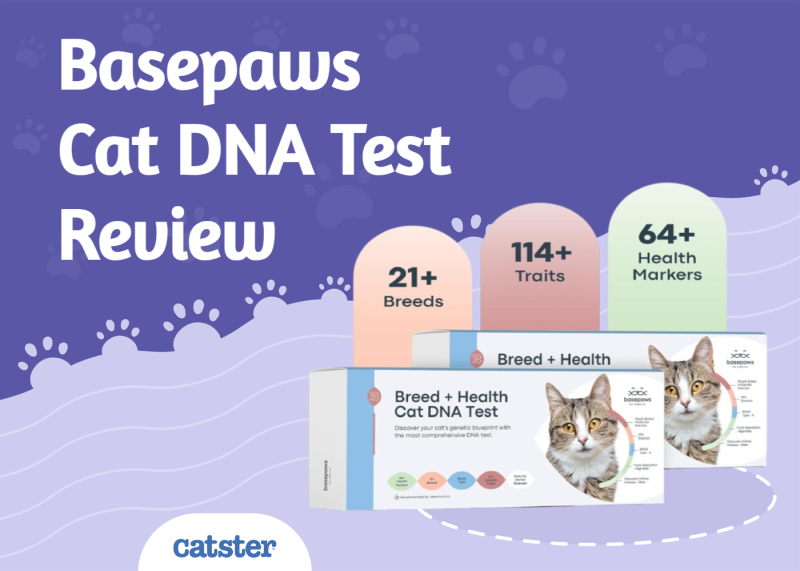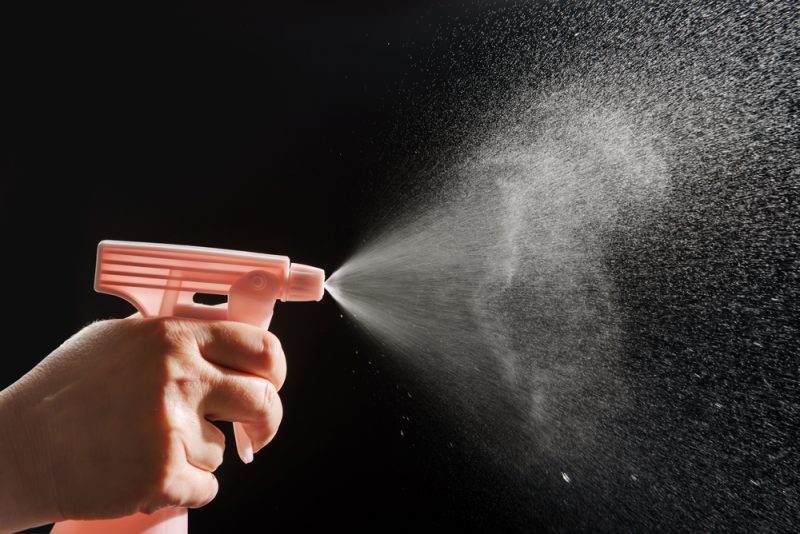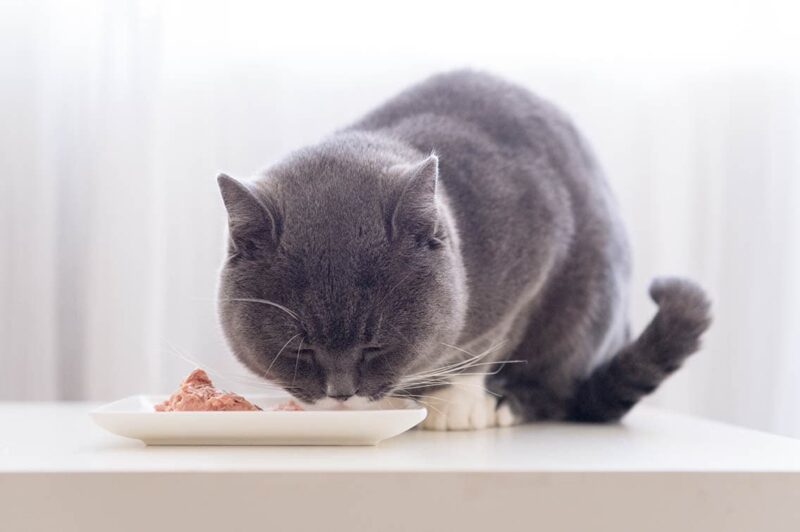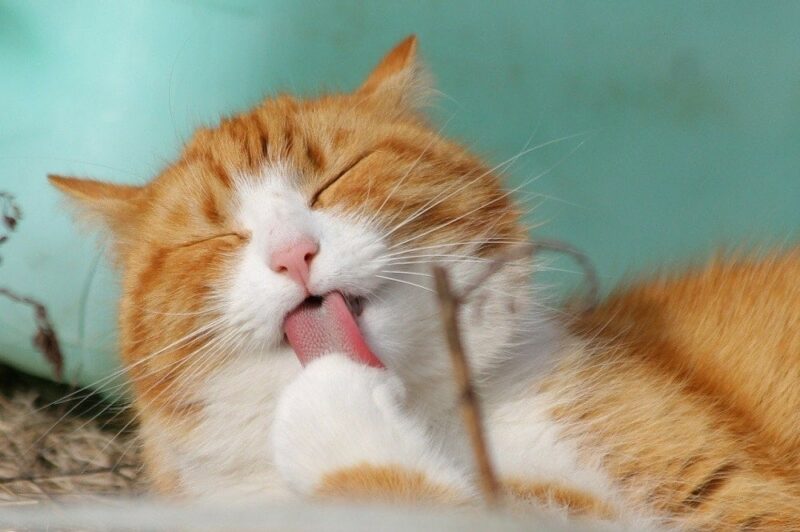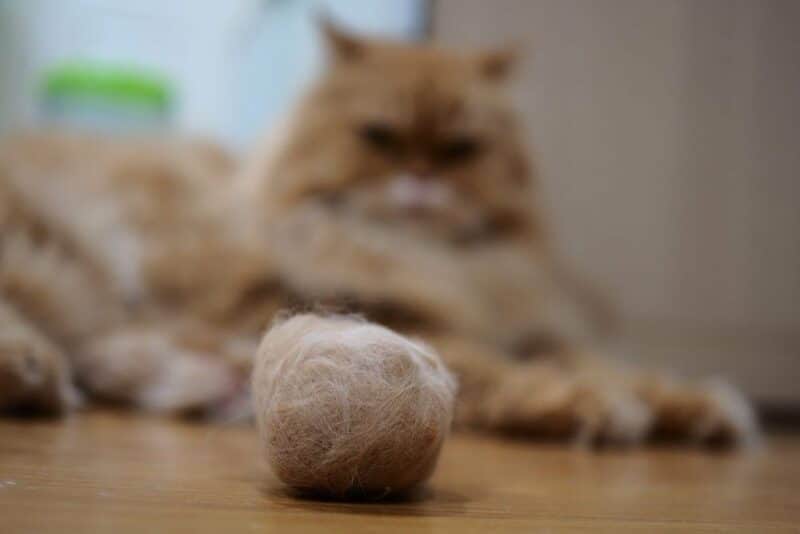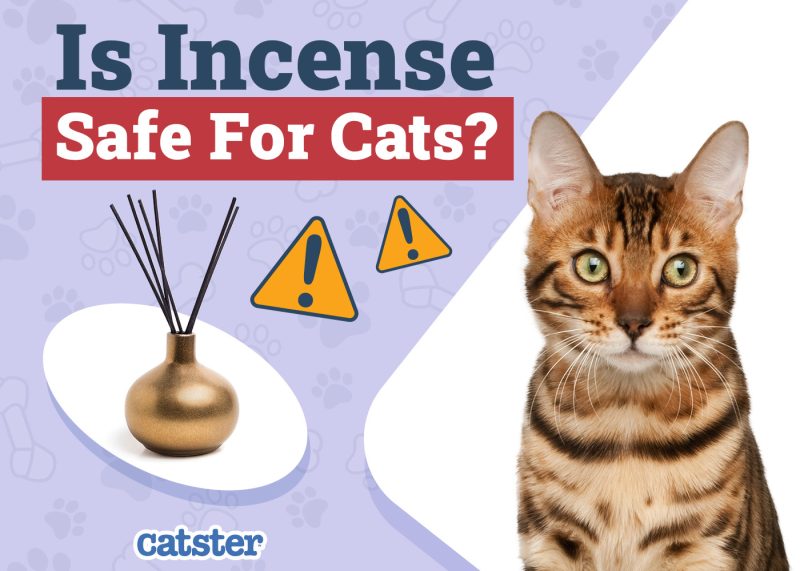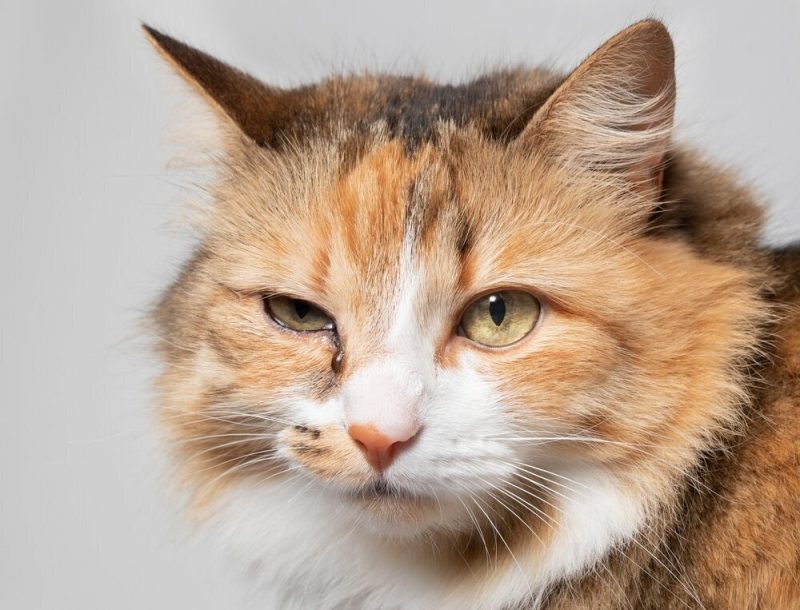There are many different reasons your cat may be experiencing a swollen tongue. A swollen tongue is typically associated with inflammation. When the tongue is inflamed, this is called glossitis. Unfortunately, if your cat has a swollen tongue, it is an indication of an underlying health issue. Clinical signs can vary, some cats may be mildly uncomfortable, and others may be extremely painful.
Swelling of the tongue should never be ignored as it can be a sign that something is seriously wrong. It can alter the way your pet eats and can stop them from swallowing properly. If you notice that your cat’s tongue has started to swell, you must seek veterinary attention immediately.

Causes of Swollen Tongues in Cats
This is a list of the more common causes of glossitis in cats. It is not an exhaustive list and other causes can exist.
1. Trauma
Injury or trauma to the tongue from a whole manner of things including bite wounds, chewing on sharp objects, dental problems, foreign material, and burns, can all cause pain and swelling of the tongue.
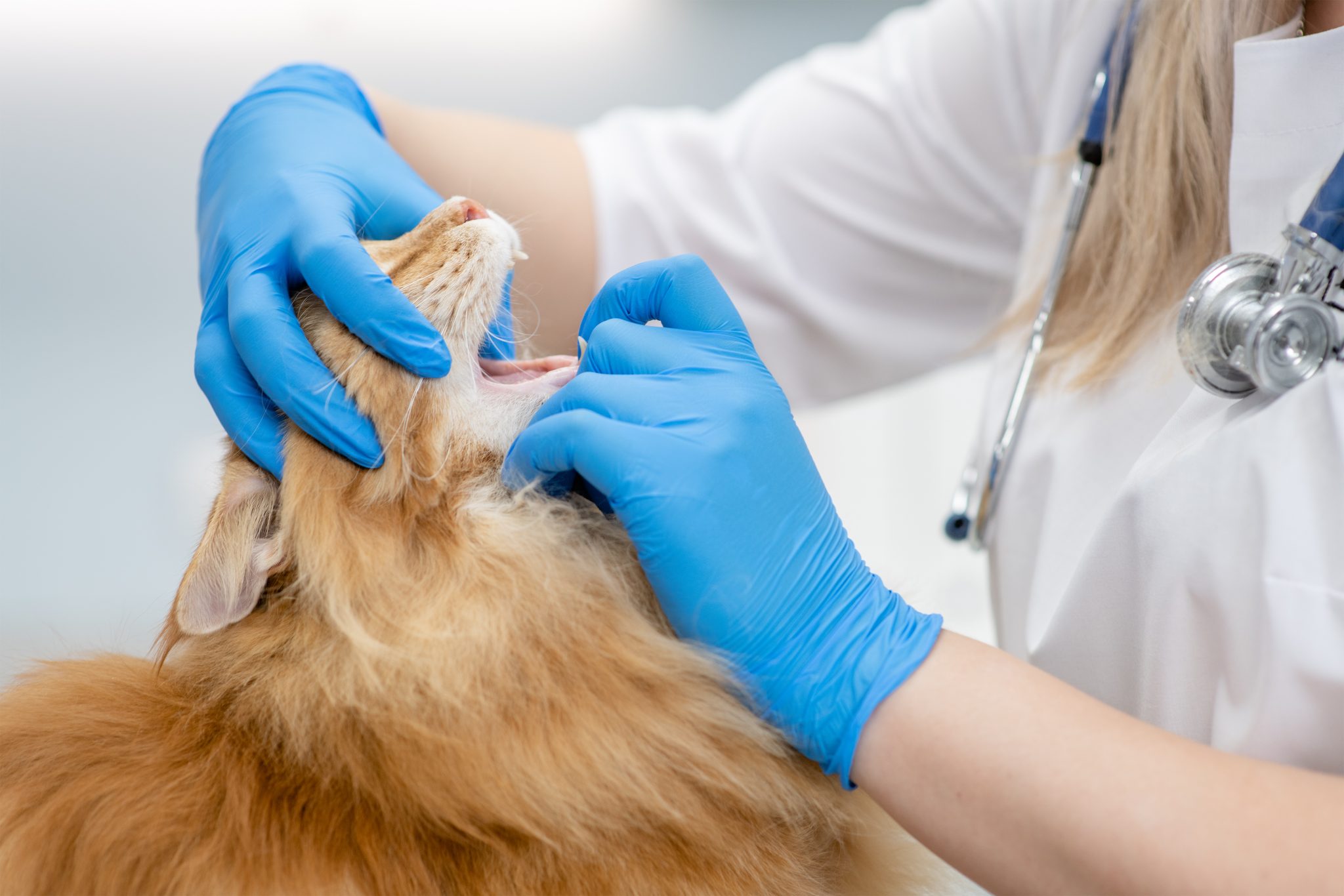
2. Allergies
Any type of allergic reaction, including reactions to foods, substances in the environment, or medications can cause inflammation in the mouth and make the tongue swell.
3. Foreign Body
Sometimes, especially with younger, more inquisitive cats, they can chew things that may become lodged in parts of the mouth. A foreign object such as a grass seed or a bit of splintered wood can become embedded in the tongue. This can cause inflammation, irritation, and swelling.
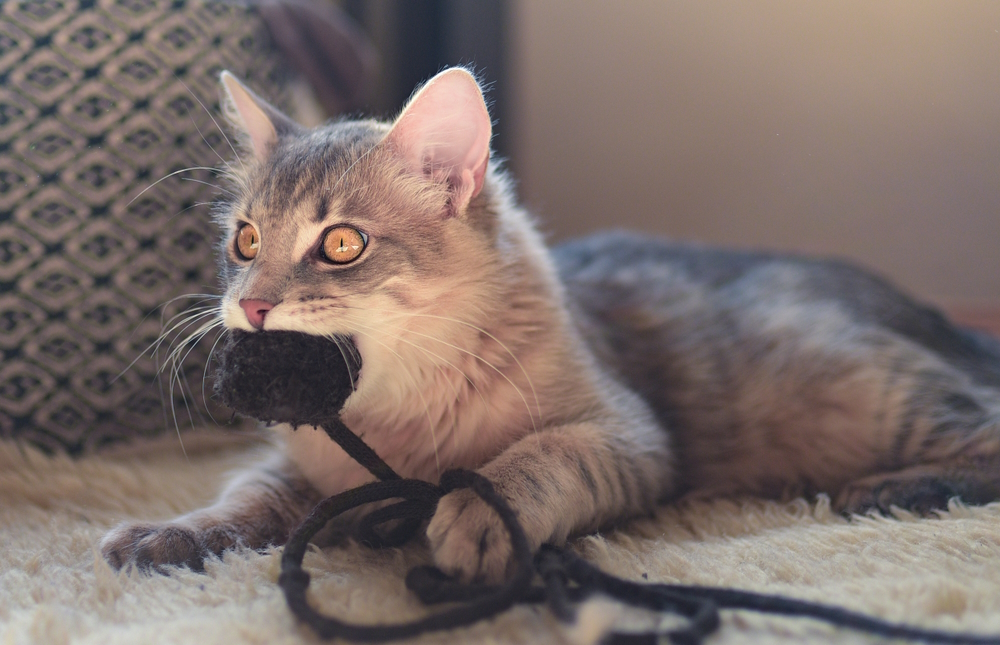
4. Tumors
Cats can experience oral tumors. They are relatively rare compared to other feline cancers. They can affect different areas including the tongue, gums, cheeks, lips, and also the salivary glands. They can be benign or malignant. Early detection of these tumors is crucial for a good prognosis. Any sort of growth on the tongue can cause swelling.
5. Stomatitis
This is a complex and very painful disease that causes inflammation in the mouth. It can affect the tongue, gums, and lips. The causes are complicated and involve an overreaction of the bodyâs immune system towards bacteria, dental disease, and injuries in the mouth.
The tongue can become very engorged and swollen in this condition and it can cause severe discomfort. Cats often experience difficulty eating when affected by this disease.
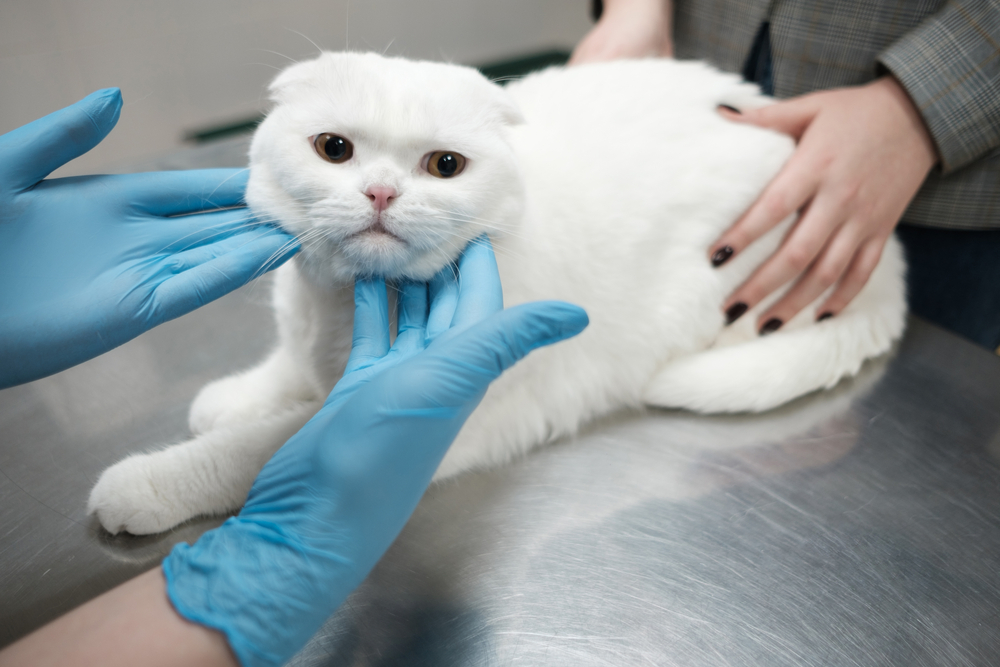
6. Toxin/Poison Exposure
Toxins and poisons can cause swelling of the tongue in cats. Many toxins can cause inflammation and irritation to the tissues in the mouth. Some can be caustic and cause damage to the surface of the tongue, and even remove the top layer of the tongue which can be very traumatic for the cat.
Some toxins and poisons can trigger an allergic reaction which can result in swelling. Some toxins can affect the balance of fluid in the body. This can allow for the accumulation of fluid around different tissues, including the tongue. This causes the tongue to swell in size.
7. Bacterial Infections
Bacteria can infect the tissues of the tongue and cause inflammation and swelling. This is often facilitated by traumatic injuries to the tongue that have broken the surface so that the bacteria have easy access. Dental disease and underlying health issues that suppress the immune system can also contribute to the development of bacterial infections.
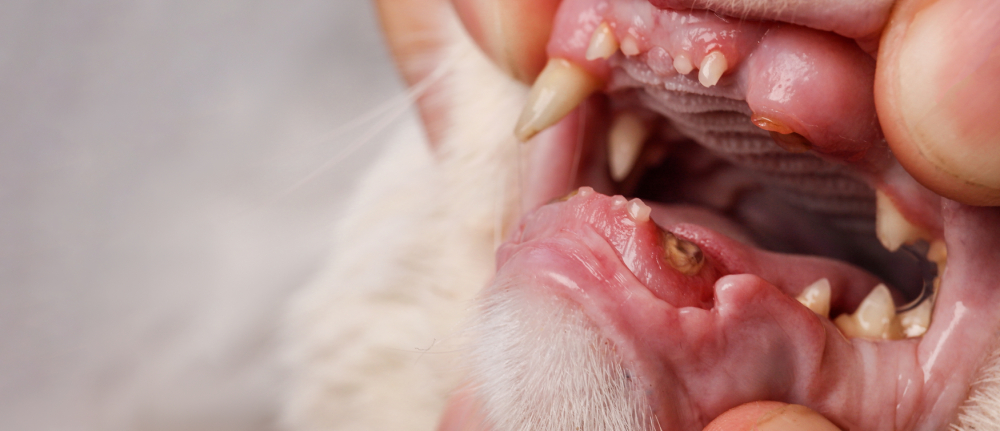
8. Viral Infections
Many viruses can affect the inside of a cat’s mouth and cause swelling of the tongue. Calicivirus is a common disease in cats. It causes painful sores and ulcers on the tongue, the lips, and the gums in the mouth. There can be substantial swelling with calicivirus lesions.
A less common viral cause of mouth ulcers is the Herpes Virus. This can result in swelling of the tongue amongst other things.
Some other viruses that can result in swelling of the tongue include Feline Immunodeficiency Virus (FIV) and Feline Leukemia Virus (FeLV). Your cat will likely have other clinical signs of illness with these diseases. They can cause suppression of the immune system as well which can hinder healing.
9. Fungal Infections
Fungal infections, with Candida albicans being a common culprit, can cause swelling of the tongue in cats. Candida albicans is a fungus that naturally occurs in cat’s mouths. Certain circumstances can affect the natural balance and cause an overgrowth of the fungus which leads to an infection. This, in turn, causes inflammation and swelling. With Candida infections, there may also be a white coating on the tongue.
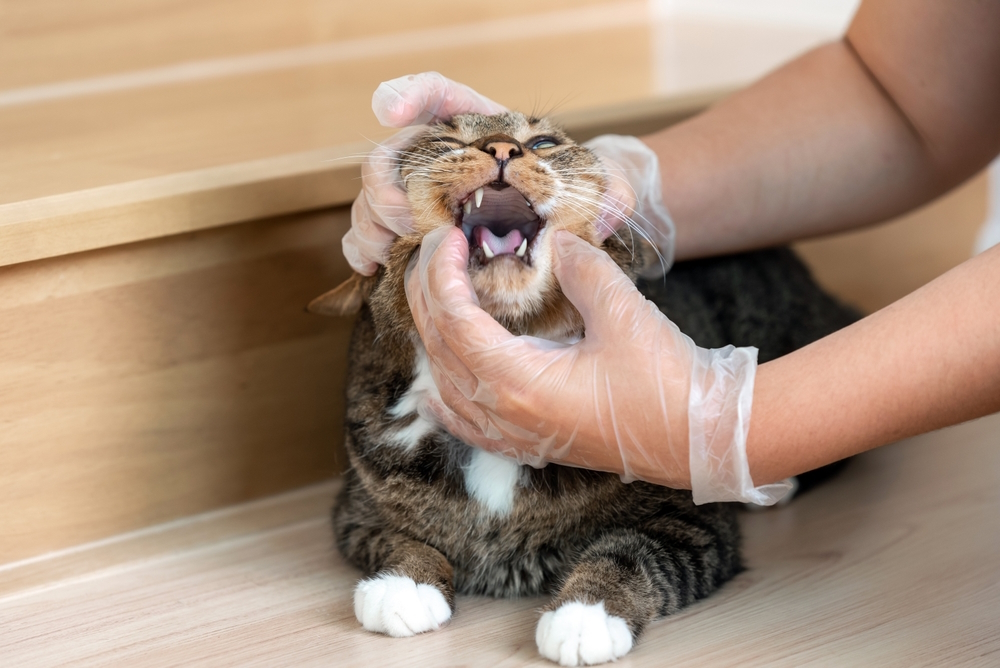
10. Liver or Kidney Disease
If your cat has liver disease, this can cause systemic inflammation in their body. In some cases, this can be in their mouth and affect their tongue.
Cats with kidney disease are often chronically dehydrated. This can cause them to have a very dry mouth and the surface of the tongue can become irritated and swell. Some cats may also experience mouth ulcers if they have kidney disease which can cause the tongue to swell.

Clinical Signs of Swollen Tongues in Cats
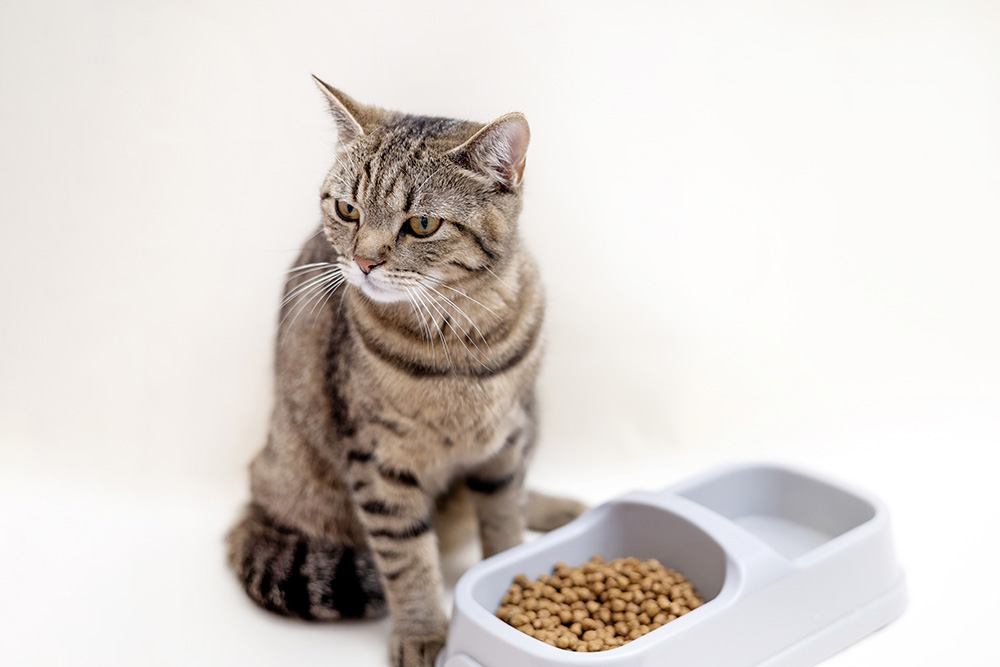
Sometimes it may not be obvious that your cat has a swollen tongue. They may not tolerate you looking in their mouth, especially if they are in pain.
- Sores and/or ulcers: You may be able to see sores or ulcers on your cat’s tongue, gums, lips, or other parts of their mouth. This is a common sign of certain viral infections.
- Struggling to eat: If your cat has a swollen tongue, they will typically struggle to eat and swallow. They may also be feeling unwell and experience a loss of appetite.
- Bad breath (halitosis): Infections and other causes of a swollen tongue such as dental disease can cause bad breath.
- Drooling: Hypersalivation or excessive drool can be an indication your cat is experiencing mouth pain, potentially due to having a swollen tongue.
- Pawing at the mouth: Your cat may start pawing at their mouth if they are experiencing pain or discomfort in any way due to their tongue being swollen.

Diagnosis of a Swollen Tongue in Cats
Your vet will first carry out a full clinical exam and take a history from you. They will need to know details such as any recent changes in diet, current medications, any dental problems, any known injuries or trauma to the mouth, vaccination history, and if they have access to the outdoors.
When examining your cat, your vet will pay special attention to your cat’s mouth. If your cat will tolerate it, your vet will use a bright light source and explore as much of the mouth cavity as possible while your cat is conscious.
- Swelling
- Redness
- Bleeding
- Ulcers
- Sores
- White spots
- Dental issues
- Foreign bodies
- Pain
Your vet will carry out routine blood tests and obtain a urine sample. In certain circumstances, they will need to take a biopsy of the tongue, for example, if there is a mass present. X-rays can be useful to assess the teeth and jawbone to see if there are any reasons for the clinical signs reported. Some foreign bodies can be seen on X-rays that may be hidden from the naked eye.
An ultrasound scan can be useful to assess some of the soft tissue in and around the mouth and neck. In some cases, for example, penetrating stick injuries, CT or MRI scans may help to pinpoint where a foreign body is embedded.
A fungal culture may be indicated if there are telltale signs of a fungal infection. Additional viral tests can be carried out if your vet is suspicious of a virus. There are specific tests for herpes virus, calicivirus, feline leukemia virus, and feline immunodeficiency virus that can be carried out.
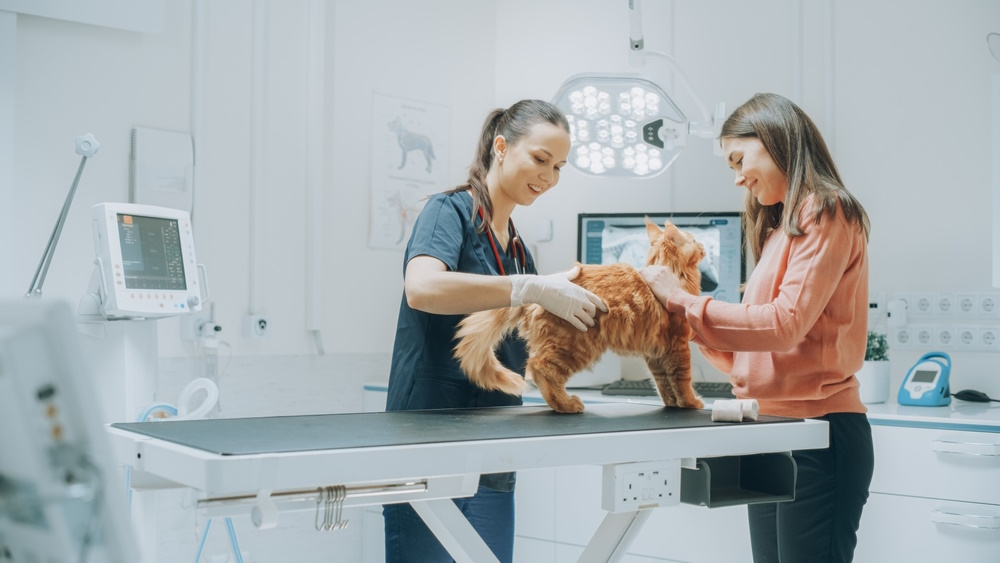
Treatment of a Swollen Tongue in Cats
Treatment options for a swollen tongue in cats depend on the underlying cause. Typically, all cases will require some sort of supportive care. Pain relief, anti-inflammatory medication, intravenous fluid therapy, and nutritional support may all be indicated depending on clinical signs and the severity of the disease.
Cats with bacterial infections will be prescribed antibiotics. If viral infections are identified, supportive care will be offered as there is usually no specific cure for viral infections. It is recommended to vaccinate your cat as vaccinations can prevent a lot of common feline viruses. Antifungal medication can be used if fungal infections are diagnosed.
Foreign bodies will be removed when the cat is conscious if this is possible. Otherwise, they can be removed under general anesthesia. Dental disease can be addressed by cleaning the teeth and extracting any that need removing.
Injuries will be dealt with on an individual basis. If there are mild injuries sustained, usually some pain relief and a short course of antibiotics are prescribed. More extensive injuries may require surgical repair under a general anesthetic.
If an allergy has been diagnosed, antihistamines and anti-inflammatories can be used. Corticosteroids can be used in some cases and there are options for immunomodulatory therapy as well. Food allergies can benefit from elimination diets or being fed hydrolyzed protein diets.
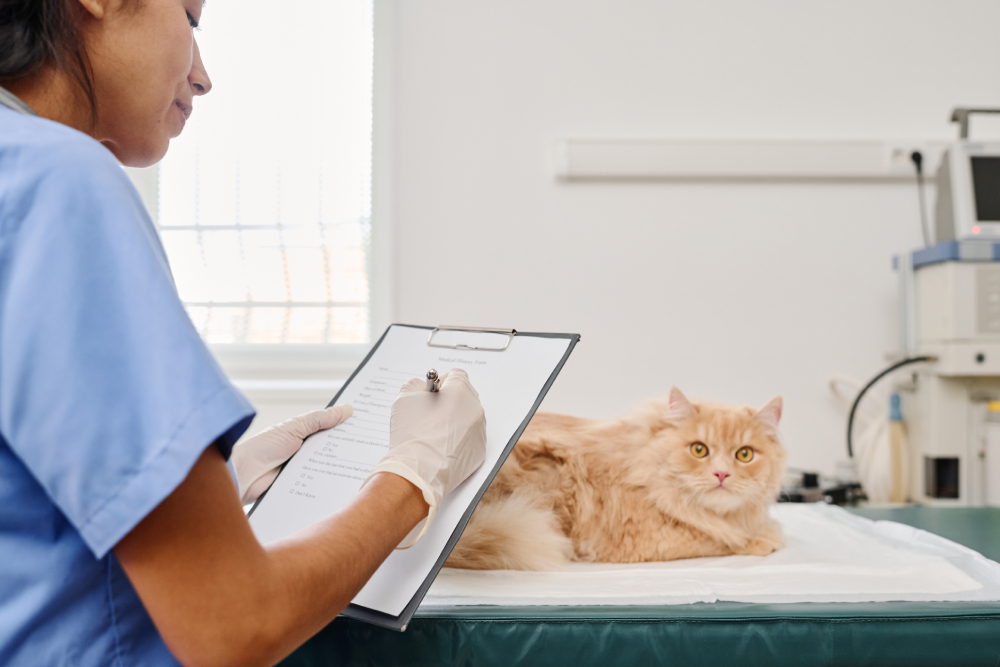

Conclusion
A swollen tongue (also known as glossitis) is a sign of something wrong in your cat’s mouth. It can be due to a whole manner of different reasons including trauma, disease, infection, toxins, or poisons.
It can cause pain and discomfort and make it difficult for your cat to eat or drink. If you think your cat may have a swollen tongue, it is important you contact your vet immediately to have them checked out.
If you need to speak with a vet but can't get to one, head over to PangoVet. It's an online service where you can talk to a vet online and get the advice you need for your pet — all at an affordable price!

Featured Image Credit: birgl, Pixabay
